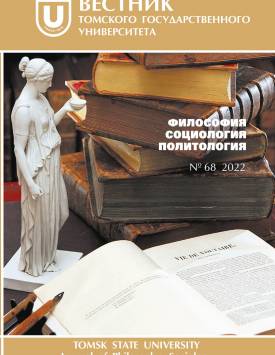Cognitive diversity as the common good
The article continues the discussion of the problem raised by I.T. Kasavin of effective management of science as a territory of cognitive freedom. A number of theoretical collisions that accompany the concept of effective science are considered. The author focuses on the oppositions between cognitive diversity and the common good, scientific autonomy and collectivization of knowledge, state regulation of science and cognitive freedom. The concept of cognitive diversity is replacing the traditional modern view of science as a universal codified knowledge, neutral in relation to private interests and material realization in products and services. Today’s science is characterized by a high degree of material and social involvement, which leads to external and internal cognitive diversity. External diversity is expressed by the multiplicity of relatively autonomous research teams competing with each other for resources. Internal diversity refers to the pluralism of social and cognitive positions represented within a research team. In the context of M. Callon’s argument (1994) and the discussion in E&PS (2020), the question is asked under what theoretical conditions today's science with its cognitive diversity can be considered a common good. It is shown that institutional or individual autonomy in science is not always equivalent to the pursuit of private interests. At the same time, the state affiliation and state funding of science are not automatically translated into cognitive universalism and a fair distribution of knowledge. It is also shown that the relationship between cognitive diversity and scientific autonomy is far from unambiguous. If the external form of cognitive diversity seals scientific communities, then the internal form, on the contrary, destroys their tightness due to the penetration of extra-scientific actors into these communities. The internal permeability of the boundaries of scientific communities contributes to the collectivization of scientific knowledge and increases the responsibility of society for evaluating scientific results and supporting science as a common good. The author declares no conflicts of interests.
Keywords
science in society, cognitive diversity, common good, scientific societies, management of scienceAuthors
| Name | Organization | |
| Stoliarova Olga E. | Inter-regional non-government organization Russian Society for History and Philosophy of Science | olgastoliarova@mail.ru |
References

Cognitive diversity as the common good | Tomsk State University Journal of Philosophy, Sociology and Political Science. 2022. № 68. DOI: 10.17223/1998863X/68/22
